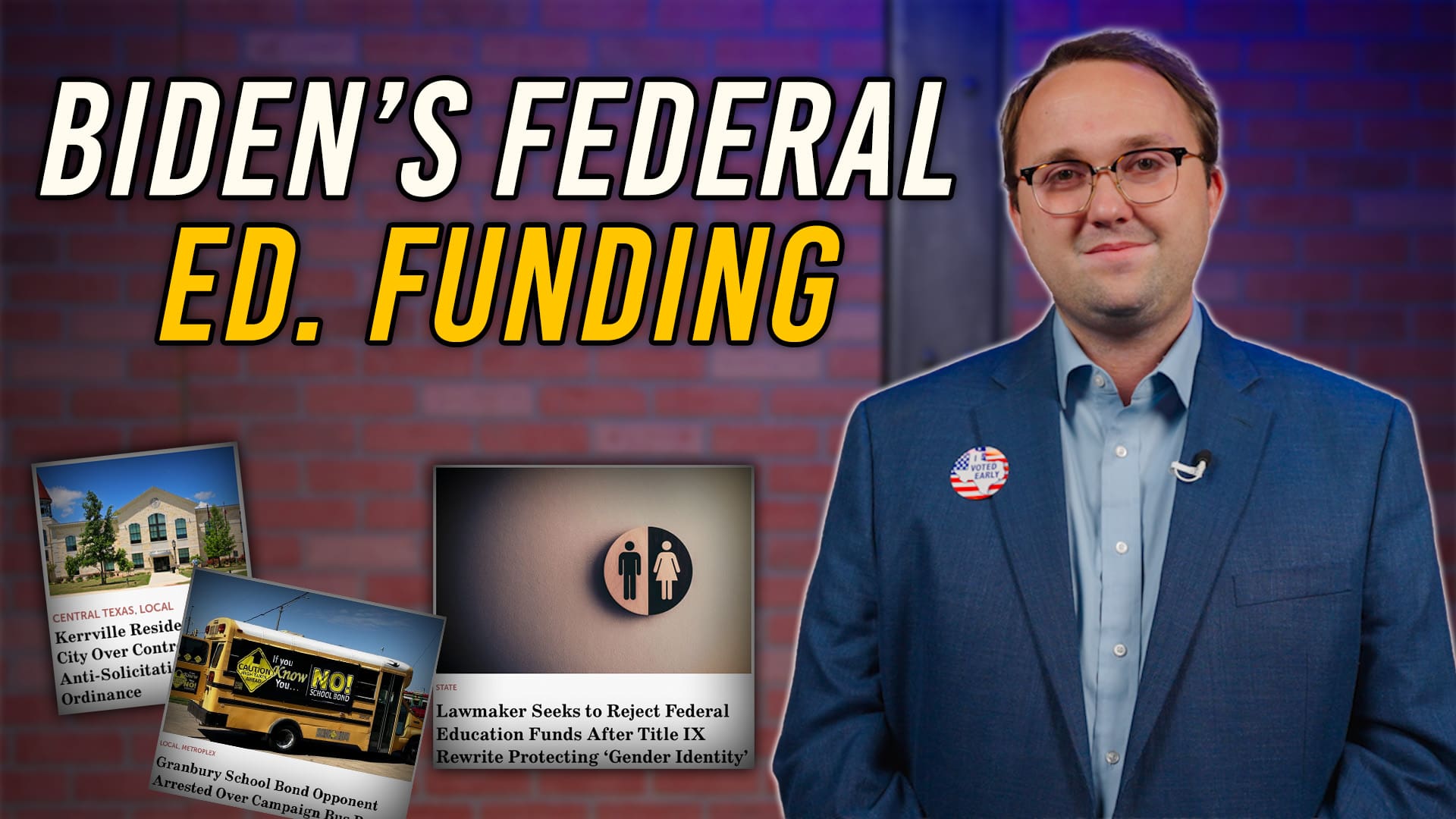Taking money from taxpayers to fund films is harmful to both taxpayers and filmmakers.
Last week, the Texas House voted on the state’s new budget, making critical decisions of where to spend our hard-earned money. As of now, part of that budget will continue funding the Texas Moving Image Incentive Program, a program that essentially takes our cash and gives it to filmmakers.
As a taxpayer, I find this outrageous.
As a filmmaker, I find this harmful.
Taxpayer outrage is both simple to understand and justified. We pay taxes for the core services of government: public safety, infrastructure, and education. When government takes this money and spends it on anything else, like failed software programs or replicas of the bridge on the Starship Enterprise, we have a right to be upset. If our cash isn’t going to core services, then we could have kept it and used it to buy essentials, pay down debt, or invest in our children’s education.
The more government spends, the more it has to take from us; and many of us only have so much room in our personal budgets. For the state to take our tax dollars and fund films instead of giving us property tax relief or reforming education is, quite simply, ridiculous.
But why do I think these handouts are harmful?
First, let me say that I love film. The art of using visuals, writing a script, and working with a variety of talented people to tell a story is both a stressful and beautiful craft.
But we make a mistake when we see money as the solution to all problems, even in film. In his book Rebel Without a Crew, Texas filmmaking legend Robert Rodriguez referred to this line of thinking as turning on “the money hose.” Instead of focusing on telling a strong story with limited resources, filmmakers are often tempted to cover problems up with money like it’s spackle.
I, myself, fell into this trap. I was stuck in the mindset of “I need more money to tell a story” instead of making simple short films with a cell phone or whatever camera I could get my hands on.
Hollywood has also fallen into this “more money solves all” mindset. The trend of making bigger and bigger-er films has legends like Steven Spielberg saying the film industry is headed for a major market reset. Time will tell, but that makes the practice of giving taxpayer money to filmmakers even more risky and foolish. The Great Recession should have taught us all what happens when you encourage industries to engage in bad behavior, and what the final cost is to taxpayers when those industries come asking for a bailout.
But what about the young up-and-coming filmmakers trying to make it?
Back when I was starting out, I helped one of my film buddies try to get a grant from Austin. We failed. And looking back, I’m actually glad we did. I feel strongly now that, not only with film but with most things in life, starting small and slowly building up is the best course to avoid self-destruction.
Had I, as a young filmmaker, been given a million dollars to make a film, I highly doubt I would have known how to spend it wisely because I had no experience trying to tell a story with no money. This is what Rodriguez learned when he started out as a filmmaker. He started with nothing, then later made El Mariachi with just the $7,000 he raised through hard work and selling his body to science (yes, you read that right). This year he just came out with Battle Angel Alita, with a budget of $170 million.
Sure, El Mariachi isn’t the greatest movie in the world, but it is a testament to using creativity to figure out how to tell a story when you have no money. And he’s not the only one to pull this off. Just see Christopher Nolan’s first film, Following, which he shot on weekends for an entire year while working a full-time job. Today, he’s one of Hollywood’s most renowned filmmakers who’s directed titles such as The Dark Knight and Inception.
Taxpayer-funded handouts, like the Texas Film program, rob filmmakers of this lesson which prepares them to tell greater stories with more money later. Starting small teaches you how to spend every single penny you have wisely to tell a good story, so you know better how to handle every single dollar later.
Film is an extremely tough business. If you want to do it, the pain of long hours, working a regular job while your passion consumes your free time, and getting no money in return will prepare you for the future. When you go through this process, you’ll know in your heart if you really love filmmaking or just the glory of it.
And, as if to prove a point, Rodriguez just came out with a new film, Red 11, also made with just $7,000 dollars.
End film handouts. Film needs it. Filmmakers need it. And, most importantly, taxpayers need it because it’s their money.





